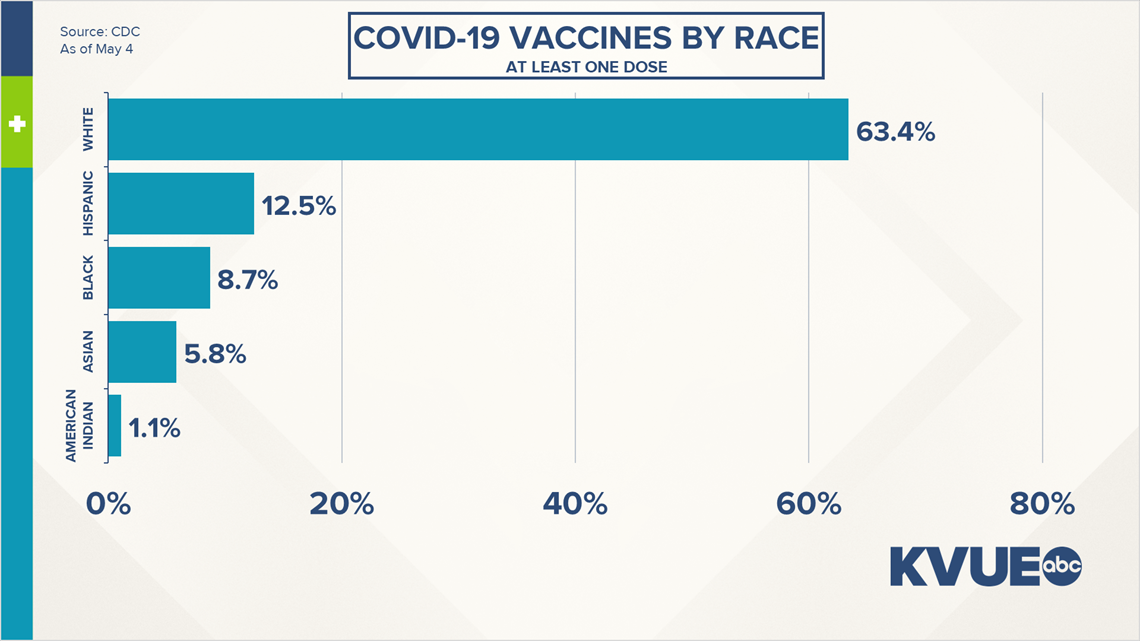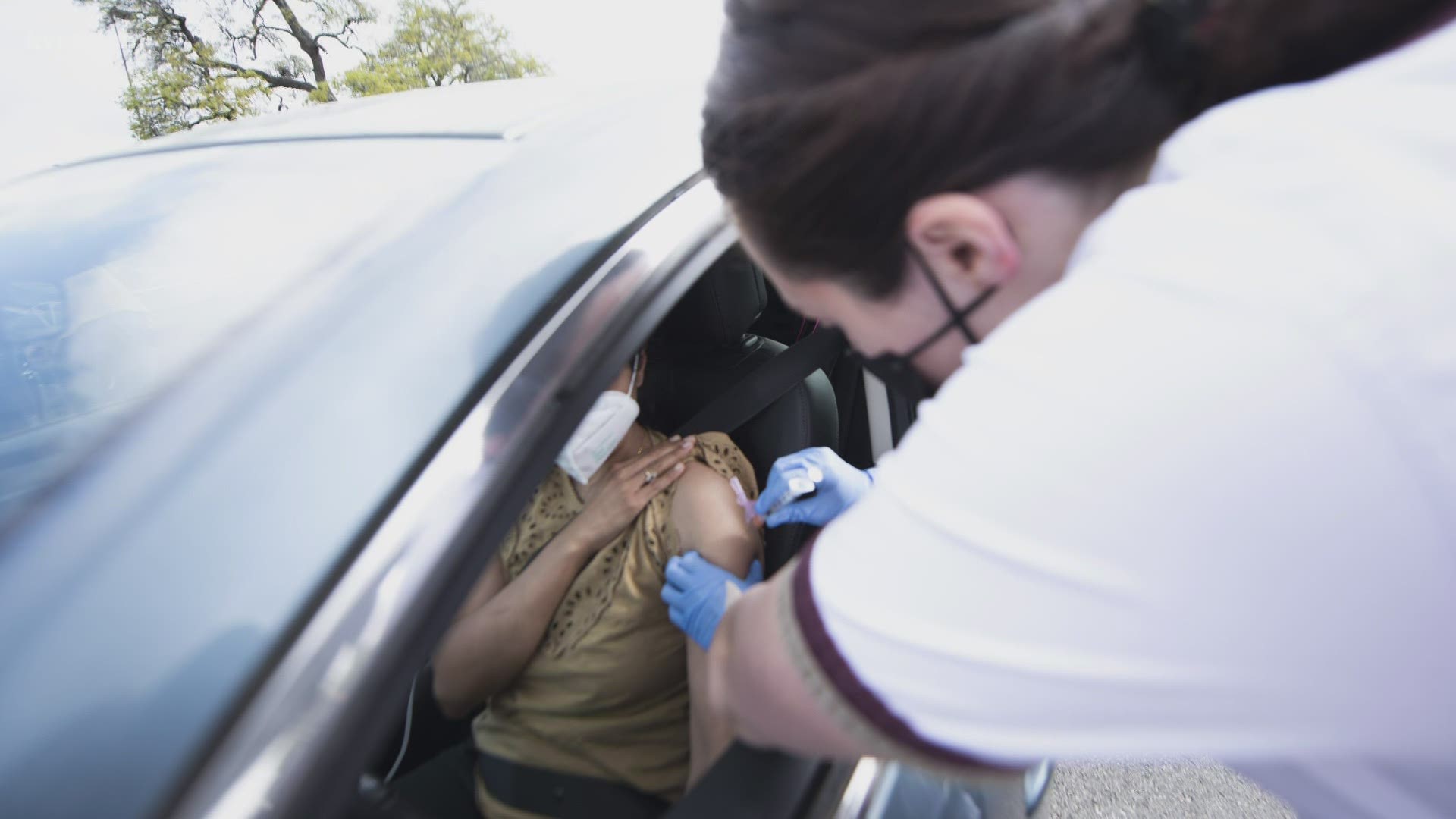PFLUGERVILLE, Texas — The past year has been tough on many. Nicholas Taylor said he's no different.
"The year is has had a lot of ups and downs. Family members [have been] affected by COVID-19. I have a mother who was furloughed because of it," said Taylor, a veteran in Pflugerville.
Taylor said his family has been careful from the start and followed the CDC guidelines once they were released. However, he said, initially he was not going to get vaccinated.
"For me, there was no consideration. I was not going to consider a vaccine at that time," Taylor said.
Taylor, like many others, said he didn't trust the government or the CDC.
"I think a lot of hesitancy comes from just past experiences, past experiences in the community, and a lot of it being such a new vaccine that there's a mistrust there with anything new. 'Why is it being pushed? Will I be safe if I received it? Does anyone care about me if something happens?' Those are a lot of things that come into play with vaccine hesitancy," said Dr. Katrina Gordon with Baylor Scott & White.
Dr. Gordon said that's one of the main hurdles they face when trying to get people vaccinated.
"Especially in the African American community," said Dr. Gordon. "I worked in different places where with even established vaccines, there is that mistrust with past experiences in a community, with the government saying, 'We're treating you, we're helping you,' and that not being the case."
Dr. Gordon pointed to data from the CDC that showed of the people who have received at least one dose of the COVID vaccine, over 60% are white and less than 9% are Black.


"Fortunately, there are some growing numbers where they are showing that more Black or African American patients are coming around and being more willing to receive the vaccine," said Dr. Gordon. "So we just have to keep making sure the vaccine is available and also providing information to help patients understand more about the vaccine."
Taylor said he changed his mind after he looked into more information and asked himself what he knew about the vaccine and what he didn't know.
"I started to ask myself some pretty point-blank questions and challenge my own intelligence on the matter," said Taylor. "'How are vaccines developed?' I didn't have the answer to that. 'How long do they take to be developed?' I didn't have the answer to that. 'What's in the vaccine?' I didn't have the answer to that. 'Did the CDC or any branch of the CDC make the vaccine?' I don't have the answer to that either. 'Well, who made it?' I don't know."
Taylor said his initial stance of not getting vaccinated changed when he looked into the data more.
"I made the decision to go ahead and get vaccinated, because that protects me, that protects my mom, that protects my loved ones," said Taylor. "And that's truly what I care about doing."
Taylor is fully vaccinated as of a few days ago. He encouraged anyone who is hesitant to do their own research before making a final decision.
PEOPLE ARE ALSO READING:

